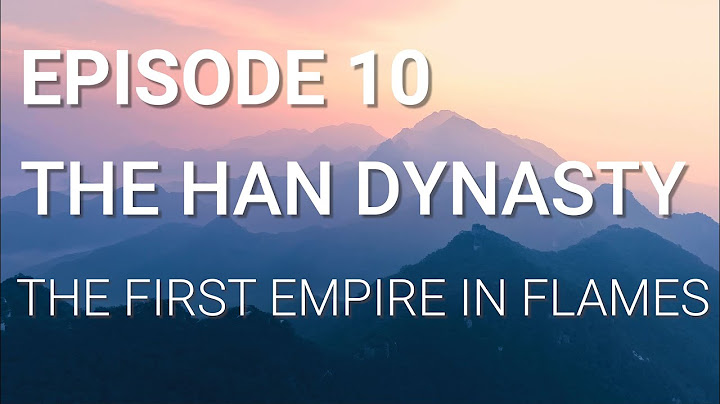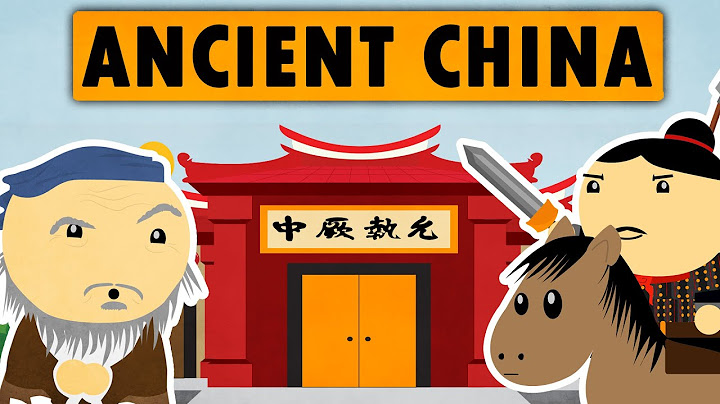The true meaning of the "Spring and Autumn Five Tyrants"

The distribution of the princes in the early Spring and Autumn Period
During the Eastern Weekend, the heroes came together. The royal family is depressed, and the world is restless. The princes of Kyushu support themselves and fight against each other. The first troubled time in Chinese history—the Spring and Autumn Period and the Warring States Period has thus opened the curtain. In the long history of hundreds of years, batches of outstanding talents have emerged from all classes and fields. Later historians made a rough generalization of the most influential princes and their regimes during the Spring and Autumn Period and the Warring States Period, and called them "春秋五霸" and "Warring States Seven Heroes" . Qi State, Chu State, Yan State, South Korea, Zhao State, Wei State, Qin State is called "Warring States Seven Heroes" There is no objection, but "春秋五霸" specific Which five hegemons are, but there has been a lot of controversy, and many different opinions have evolved. Today we will discuss them.
“霸” is “伯”, which means hegemony. In the environment of disputes between princes in the Spring and Autumn Period, all countries can be in troubled times. orders the princes and kings of the world to be the real hegemon. Generally speaking, in the Spring and Autumn Period, there must be a procedure: to call the princes of the world to come to the Union in the name of the Zhou royal family, and be recognized by most princes as the leader of the princes. The popular point is to sit among the recognized leaders. The monarch in position is the overlord of the Spring and Autumn Period. Xun Zi, a Confucian thinker at the end of the Warring States period, believed that the highest ideal of the princes of the world should be "王天下" , and the second ideal would be "霸诸侯" . In the Spring and Autumn Period, he wanted to achieve the goal of Yi Kuang Tianxia. Obviously it is not realistic. Only to dominate among the princes is the highest ideal of every prince and a symbol of the strongest.

The "Spring and Autumn Five Tyrants" statue
What Xunzi thinks is the "Spring and Autumn Five Tyrants"
Xunzi in his own work for "How can it be considered The proposition "" in the true sense of the vassals has a very systematic discussion. "Xunzi·Wangba" records:
Therefore, those who use the country, the righteousness and the king, the faithfulness and the hegemony.
He believed that only by establishing credibility and prestige among the princes, can he be regarded as a real hegemon. From this sentence, we can see that Xunzi believes that if a prince wants to dominate among the princes, the most important thing is to be able to establish prestige among the princes, speak credit, and be able to use “大义” to command In the world, everything must obey a “义”. But the most important thing to establish prestige is to be strong and fist. Only what you say counts and the princes can be convinced.
Xunzi himself has his own views on which five princes and kings are the "Spring and Autumn Five Tyrants", "Xunzi·Wangba" Record:
If so, then you will be strong. , The enemy and the country fear it; the country is one, and the country believes it; although in a remote country, the world is threatening, Wu Bo is also. Therefore, Qi Huan, Jinwen, Chuzhuang, Wu Helü, and Yue Goujian are all remote and unruly countries. They have moved the world and made China stronger. There is no other reason to believe in it, which is the so-called trust and hegemony.

Xunzi portrait
From this passage, we can see that Xunzi felt that if a country and a monarch wanted to dominate among the princes, it must first have a strong military Economic strength is the foundation, so that hostile countries can be in awe of themselves. Moreover, if you want to be hegemonic, you must first speak credit and prestige to your subjects and people in your country, and you must first rectify yourself. Only the country that has the ability to convince other countries can finally complete the hegemony of moving the world and dominating Kyushu.
So Xunzi believes that among the princes and kings in the Spring and Autumn Period, only Qi Huan Gong, Jin Wengong, Chu Zhuang Wang, Wu Wang Helu, Yue Wang Goujian Five people have achieved this and are the real overlords. The reason why these few can dominate is that after active expansion and development, based on strong military strength, they continue to enhance their own comprehensive national strength, and then defeat their competitors one by one, call on the princes of the world to hold alliances and serve as leaders. , Established his absolute prestige among the princes, and then "Take the emperor to make the princes" finally achieved the goal of dominance. It seems complicated and many, but in fact there is only one point, that is, the word “信义”, which not only speaks faith to the people of the country, but also speaks faith to the people of the world. Only by actively fulfilling these two words can you finally be among the lords. dominate. It can be said that "信义" is the essence and essence of dominance in the Spring and Autumn Period.
The most recognized "Five Tyrants in the Spring and Autumn Period"

宋相公
However, the above statement is after all Xunzi's words, and will eventually be involved in it. The ideological concept of Confucianism is determined by "春秋五霸" . There are other opinions that are more recognized in the history circle. The highest degree of recognition should be considered by the historian Sima Zhen of the Tang Dynasty: Qi Huan Gong, Jin Wen Gong, Qin Mu Gong, Chu Zhuang Wang, Song Xiang Gong Five princes. This is recorded in the book "History of Suo Yin" compiled by him. Compared with Xunzi’s views, Sima Zhen’s opinion is that the first three of "春秋五霸" are the same, but the difference is that Qin Mugong and Song Xianggong replaced Wu Wanghelu and Yue Wang. Goujian. Sima Zhen thinks so for two reasons: First, time is a problem. The time when the Wu and Yue two heroes dominated the princes is approaching the Warring States Period, and the viewpoint of "春秋五霸" was determined long before the Wu and Yue two heroes dominated. Second, although the Wu and Yue Shuangxiongs possessed strong military strength for a certain period of time, they also destroyed their strong enemies and established high prestige. However, their scope of activities does not completely involve the entire Central Plains, and can only be regarded as the dominance of Jiangnan, rather than the dominance of Kyushu.

郑庄公
is more similar to Sima Zhen’s view, and another big point that is also recognized by historians is that of modern scholar Zhu Qifeng in his academic work 《词通》 The five tyrant candidates proposed in the following: Qi Huan Gong, Jin Wengong, King Chu Zhuang, Qin Mu Gong, Zheng Zhuang Gong Five princes. The views of Mr. Zhu Qifeng are basically the same as those of Sima Zhen, except that Zheng Zhuanggong replaced Song Xianggong. The reason is that Song Xianggong's hegemony has always been controversial. Many scholars believe that Song Xianggong's hegemony is somewhat comical, which can also be said to be a misnomer. Although the Song State during the Song Xianggong period took advantage of Qi's civil strife to help stabilize the royal family and support a new monarch, it also helped other small countries to solve their political affairs and supported the Eastern Zhou royal regime on many occasions. But in the final analysis, there is still no strong appeal, and it has not been able to establish its own prestige among the princes, especially among some big countries. Just like the case of Song Xiang Gonghui princes who were captured by King Chu Cheng and returned to the state of Chu, instead of convincing the princes, they were ridiculed. Compared with Song Xianggong, Zheng Zhuanggong has at least a certain political ability, and can also defeat the five-nation coalition. He has a certain reputation in the Spring and Autumn Period. Therefore, Mr. Zhu believes: Compared with Song Xianggong, Zheng Zhuanggong of "春秋三小霸" is more qualified to sit in the last position of "春秋五霸" .
家之言

晋939公
The above two are the more popular viewpoints in historians. Which one is more suitable and still remains There are objections. I personally think that in "春秋五霸" , first of all, 齐桓公,晋文公 are the Spring and Autumn Overlords who do their part. They must be strong and capable during their reign.Power was also very prestigious among the princes. At the time, at least it was recognized by the people of the world. And 秦穆公 and 楚庄王 are roughly talented, and the comprehensive national strength of Qin and Chu is comparable to that of Qi and Jin. Although some people dispute the supremacy of Qin and Chu, The reason for the dispute is not ability and prestige, but because one of Qin and Chu is in the west and the other is in the south. Geographically, they were once regarded as barbarians by the Central Plains countries, and they were a little contemptuous in their hearts. The top four of "春秋五霸" are indisputable. The most controversial is the fifth place. I personally think that 晋939公 is more appropriate. Jin mourned his father-in-law, and worked hard during his reign, dedicated to reviving the glory of the Jin country, and repeatedly called on the princes to re-establish the prestige status of the Jin country among the princes, and dominated Kyushu for a long time. Regardless of strength or influence, it is much more prominent than Song Xianggong, Zheng Zhuanggong, Wu Wanghelu, Yuewang Goujian , so on "春秋五霸" the last one, I think it is a condolence Do your part.

Distribution of the princes in the late spring and autumn "History of Suo Yin"





















